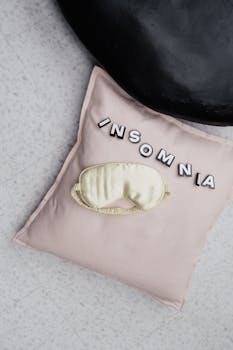Finding the best sleep aids can be a priority for those struggling to get a good night’s rest. Whether it’s occasional sleeplessness or chronic insomnia, many individuals seek effective solutions. This article will explore various options, including both prescription sleep medications and over-the-counter sleep aids, providing detailed information on their effects, risks, and alternatives.
Understanding the Best Sleep Aids
The search for the best sleep aids includes a wide range of options catering to different needs. From prescription sleep medications to natural remedies, the choice depends largely on personal circumstances and health conditions. While some people require strong medications for chronic insomnia, others may benefit from non addictive sleep aids that help alleviate anxiety-related sleep disturbances.
Prescription Sleep Medications
Prescription sleep aids, such as those for insomnia and severe sleep disorders, are typically stronger and require a doctor’s approval. These medications, often referred to as the strongest sleep meds, can effectively induce sleep but may come with side effects and potential dependency risks. Examples include benzodiazepines and newer non-benzodiazepine drugs, collectively known as the best medication for insomnia. However, it’s crucial for individuals to discuss with their healthcare providers to ensure these medicines are the best fit for their specific conditions.
Over-the-Counter (OTC) Sleeping Meds
OTC sleeping meds offer an accessible alternative to prescription options. These medications, including popular top 10 sleeping pills over the counter, are often used for short-term relief of sleeplessness. While generally considered safe when used as directed, they may still carry side effects such as drowsiness the next day or interactions with other medications. Understanding what over-the-counter options exist ensures an informed choice for those seeking immediate yet safe sleep solutions.
Non-Addictive and Non-Habit-Forming Sleep Aids
For those concerned about the risk of dependency, non addictive sleep aids and non habit forming sleep aid options are valuable. Many herbal and natural supplements fall under this category, including melatonin and valerian root. While these may not be as potent as prescription alternatives, they serve as a safer long-term option, especially beneficial for people who experience occasional sleep disturbances.
Natural and Alternative Sleep Solutions
Natural remedies can offer support without the side effects associated with medications. Techniques such as yoga, meditation, and cognitive behavioral therapy for insomnia (CBT-I) are gaining recognition as viable methods to improve sleep hygiene and address sleep-related anxiety. For more information on natural anxiety management, you can explore alternative solutions to manage stress and anxiety.
Balancing Risks and Benefits
While many individuals seek out strong sleeping pills, it’s important to weigh their benefits against potential risks. People with chronic health conditions or those taking other medications should particularly be cautious and consult healthcare professionals before starting any new sleep regimen. Moreover, understanding that not all solutions are suitable for everyone is key. By exploring different sleep aids, individuals can identify which best supports their needs.
Potential Side Effects and Considerations
Both prescription and over-the-counter sleep aids have a range of potential side effects. Common issues include daytime drowsiness, dry mouth, dizziness, and dependency. Some strong options may even lead to complex sleep behaviors like sleepwalking. Consulting with a healthcare professional can help mitigate risks by finding an appropriate sleep aid tailored to an individual’s health profile.
Practical Lifestyle Adjustments
In addition to medications and supplements, lifestyle modifications can play a critical role in improving sleep quality. Adopting a consistent sleep schedule, optimizing the bedroom environment, and minimizing caffeine and electronics before bed can significantly enhance sleep health. Combined with other treatments, these changes can create a robust framework for overcoming sleep challenges.
Evaluating Your Options
Determining the best sleep aids involves individualized assessment and, often, professional input. If sleep disturbances persist or interfere with daily life, seeking medical advice is essential. A healthcare provider can recommend appropriate prescription medications or advise on effective OTC or natural options. For a broad understanding of sleep-related health, visit this comprehensive health resource.
Ultimately, the pursuit of the best sleep aids is about finding what works for you without compromising safety. Through careful consideration of your symptoms and a comprehensive approach that includes both medications and lifestyle changes, restful sleep is an achievable goal.
- Best sleep aids range from prescription to OTC options and natural remedies.
- Consider side effects and dependency risks when choosing sleep aids.
- Consult a healthcare provider for personalized insomnia treatments.
- Incorporate lifestyle changes to support effective sleep routines.
- Non addictive options are suitable for those with anxiety-related sleep issues.
What is the best medication for insomnia?
The best medication for insomnia varies among individuals but often includes prescription options like benzodiazepines or non-benzodiazepine hypnotics. Consulting with a healthcare provider can help identify the most suitable choice based on the severity and nature of insomnia.
How do OTC sleep aids compare to prescription medications?
OTC sleep aids are typically milder and used for short-term relief of sleeplessness, whereas prescription medications are stronger and intended for severe insomnia. Each has its own set of potential side effects and time of efficacy.
Are there sleep aids specifically for adults with anxiety?
Yes, some sleep aids target both sleep issues and anxiety. Non addictive options like melatonin or valerian root, coupled with therapy techniques, may support sleep improvements for adults with anxiety.
Can lifestyle changes alone improve sleep quality?
Lifestyle changes such as maintaining a consistent sleep schedule, creating a relaxing bedroom environment, and reducing stimulants before bedtime can significantly improve sleep quality and complement other treatments.
What are the risks of using strong sleeping pills?
Strong sleeping pills may cause side effects such as daytime drowsiness, dependency, and risky sleep behaviors like sleepwalking. It’s important to use them under medical supervision to manage these risks effectively.






